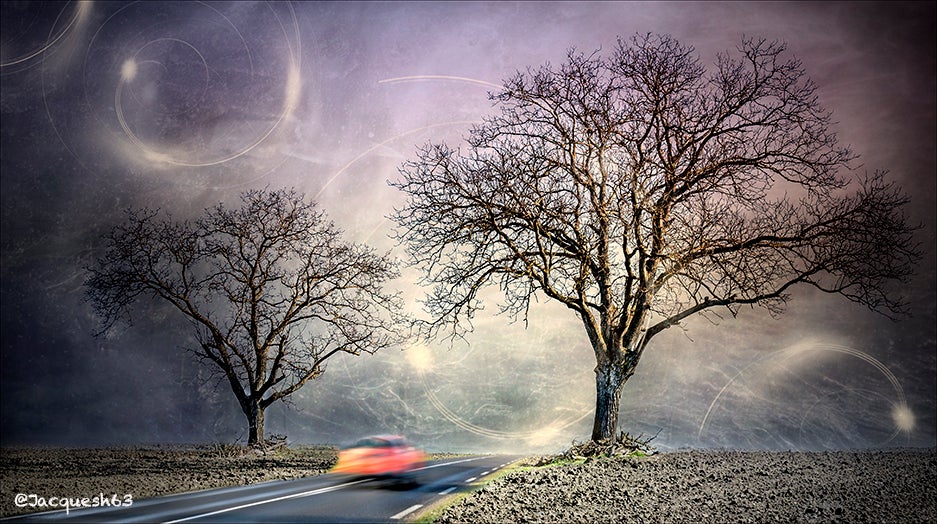
I recently started to dabble in creating ceramic art. This wasn’t something that I had always wanted to do or had spent a lot of time thinking about. I had never even watched a YouTube video of anyone creating pottery. It held no fascination for me. It was a spur of the moment decision.
Then, when I saw that a class at the Craft Center was open, I signed up for it. I attended the first class on a Sunday night, thinking I was going to regret it. This was not how I typically wanted to spend my Sunday evenings. But right from the first class, I was hooked. I left the class feeling a sense of elation. I thought it was just the novelty of it all — I didn’t think that the feeling would last. But almost a year later, I continue to feel excitement and joy whenever I go to the studio and work on creating something. And I realized something else – this sense of joy and peace is the same feeling I experience when I paint, dance or write.
So, what is it about doing something “creative” that provides people with a sense of rejuvenation and emotional well-being? A recent study1 in the field of positive psychology found that creativity is correlated with happiness and found that participants felt more energized after having completed a creative activity. Engaging in a creative activity is akin to practicing a mindfulness exercise – it lends itself to a state of focus and being present in the moment. I found that no matter what was on my mind when I entered the ceramics studio, I had to be completely present while sitting at the potter’s wheel working on the clay, attending to the movement of my hands and fingers. If I didn’t, my clay would collapse or warp and I would have to start over. It forced me into a state of mindful action, which then allowed me to experience a sense of serenity.
What if you don’t think of yourself as creative? How can you foster your own creativity?
Revise how you think of creativity. So, what is creativity? I never thought of myself as creative. I thought I had to create something beautiful and awe-inspiring before I could ever think of myself as creative. But that’s just a very narrow definition. Every time you use your imagination you are being creative. When you make up a meal out of the few leftover ingredients in your pantry, you are being inventive and creative. When you read a book someone else has written, and imagine yourself in the world the author has created, you are being creative. Every time you use your imagination to create meaningful new ideas, interpretations, solutions or expression, you are being creative.
Make time for creativity. Cultivate creativity as a daily habit. You may not have a lot of time, but you could dedicate a few minutes each day to write in a journal, sketch something, daydream about something, go for a walk and photograph something, make up a silly song, use a coloring book — there are a multitude of possibilities.
Step out of your comfort zone. When you try something that is new to you, you are forced to use mental resources that you don’t typically use. If you end up not liking what you try, move on to another pursuit. Even if you didn’t enjoy the new thing you tried, you still will have exercised some creative energy that you hadn’t in the past. And who knows – you may end up falling in love with the new activity. For 36 years of my life, I didn’t know that I would enjoy pottery. I tried it on a whim, and it has become one of my go-to ways of relaxing.
Put away your electronics for a while and go off-line. Create time for solitude. Engage with your friends and with your surroundings in a way that’s not mediated by electronics. Write someone a letter or a card with real paper. Go for a walk and try to identify different trees. Go to the mall and people watch. Read a book instead of a blog post.
Do not be focused on the outcome. When you do something creative, it’s very possible that the end result is not perfect. Be okay with this. My first fifty bowls were lopsided and weird looking. But I enjoyed making them just as much as I enjoy making the ones that come out perfectly round. Fostering creativity is about enjoying the journey, not the end-result.
Asha Stephen, Ph.D.
Senior Staff Psychologist
Photo: Voyage de Nuit by jacquesh63 CC-BY-NC-SA 2.0
[1] Tamlin S. Conner, Colin G. DeYoung & Paul J. Silvia (2016) Everyday creative activity as a path to flourishing, The Journal of Positive Psychology, 13:2, 181-189.
